God, Space and Nature
Key Terms
- Cambridge Platonists
- Henry More
- Isaac Newton
- Space
- God
- Extended Object
- Space and Time
- Absolute Space
- Absolute Time
- Ralph Cudworth
- Holenmerism
- Force
- Panentheistic panpsychism
- Vitalism
- Pantheism
- Panentheism
- Panpsychism
- Voluntarism
- Henry More; Isaac Newton; Spirit of Nature; aether; pneuma; gravitation
- Ralph Cudworth, Henry More, John Smith and George Rust
- Francis Glisson
- Baruch de Spinoza
- Hylozoism
- Descartes
- Cartesian Dualism
- Spinozist Monism
- Consciousness
- Vedic Philosophy
- Advait Vedanta Philosophy
- Sankara’s Vedanta
- Trika Philosophy
- Ralph Abraham
- Sisir Roy
- Christian Hengstermann
- Jonathan Duquette
- Paul Schweizer
- Prof. K. Ramasubramanian
God, space and the Spirit of Nature: Morean trialism revisited
Source: God, space and the Spirit of Nature: Morean trialism revisited

Source: God, space and the Spirit of Nature: Morean trialism revisited
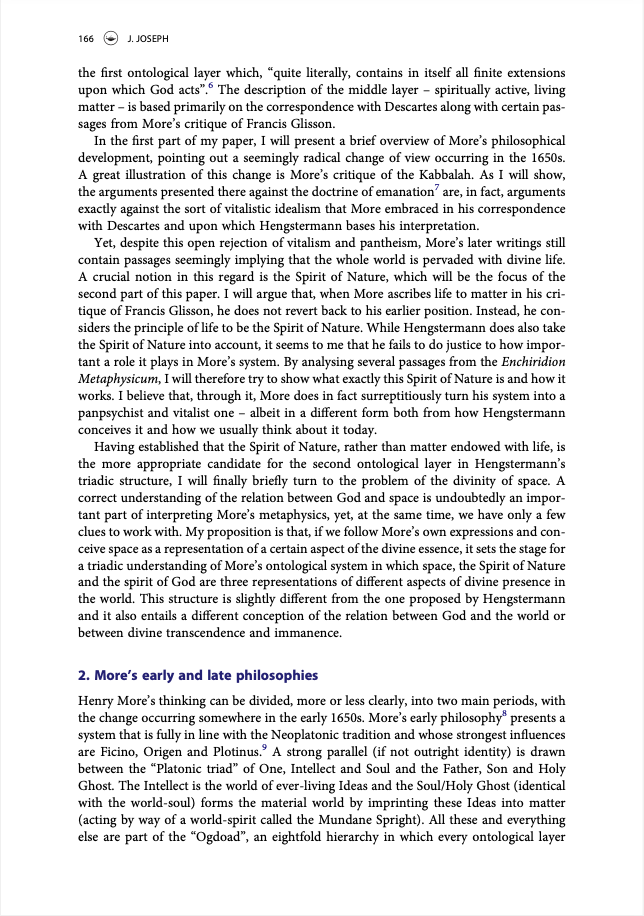
Source: God, space and the Spirit of Nature: Morean trialism revisited

Source: God, space and the Spirit of Nature: Morean trialism revisited

Source: God, space and the Spirit of Nature: Morean trialism revisited

Source: God, space and the Spirit of Nature: Morean trialism revisited
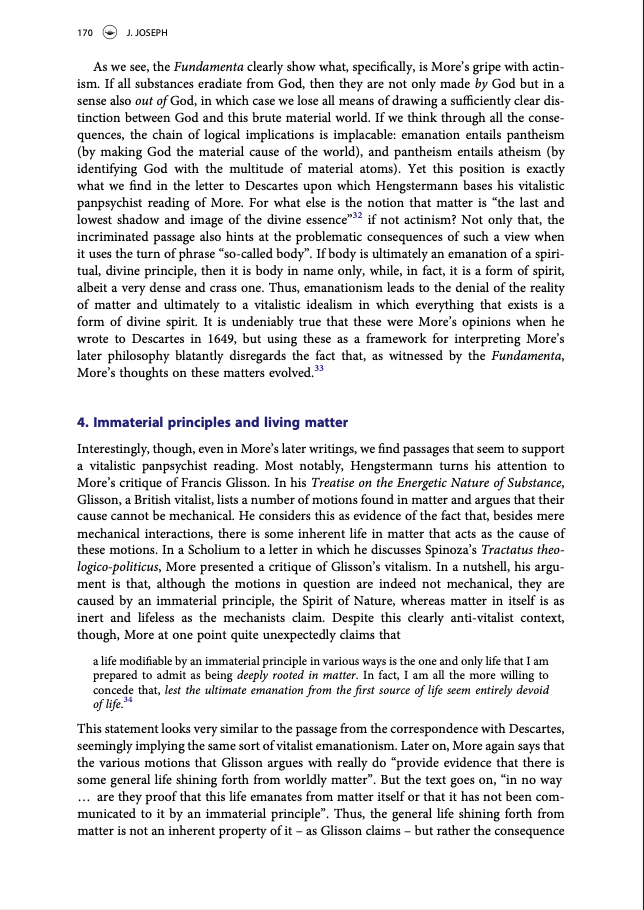
Source: God, space and the Spirit of Nature: Morean trialism revisited

Source: God, space and the Spirit of Nature: Morean trialism revisited

Source: God, space and the Spirit of Nature: Morean trialism revisited

Source: God, space and the Spirit of Nature: Morean trialism revisited
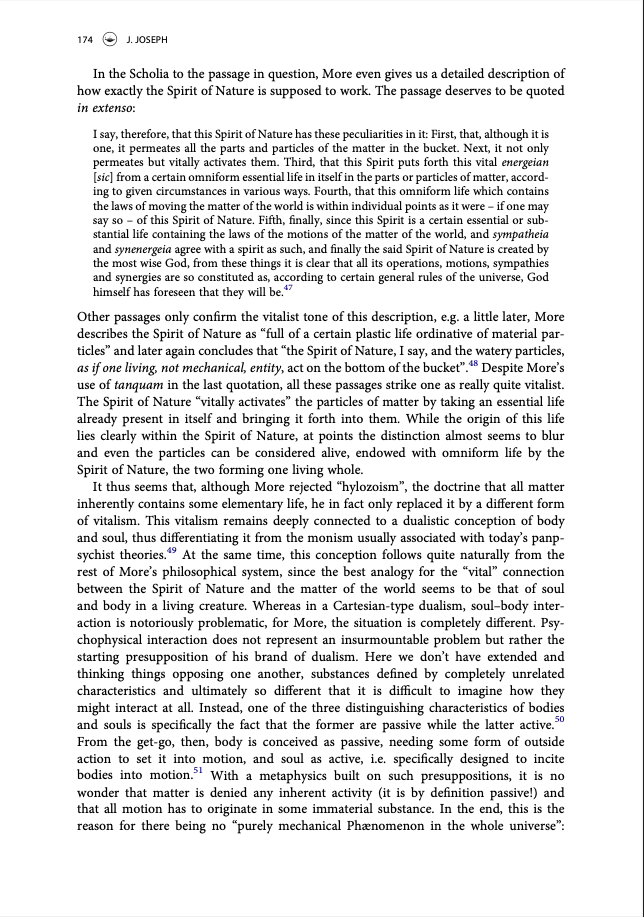
Source: God, space and the Spirit of Nature: Morean trialism revisited

Source: God, space and the Spirit of Nature: Morean trialism revisited
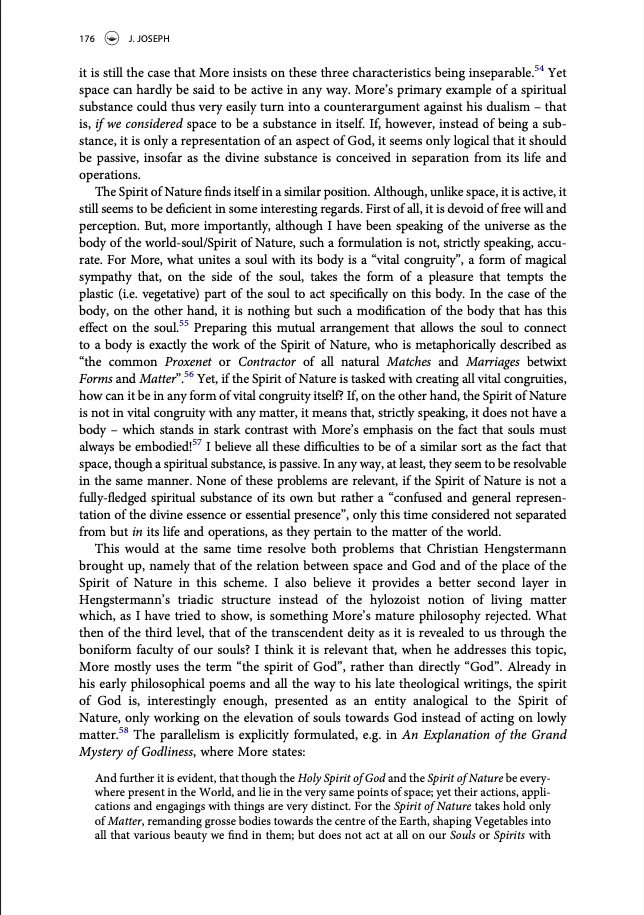
Source: God, space and the Spirit of Nature: Morean trialism revisited
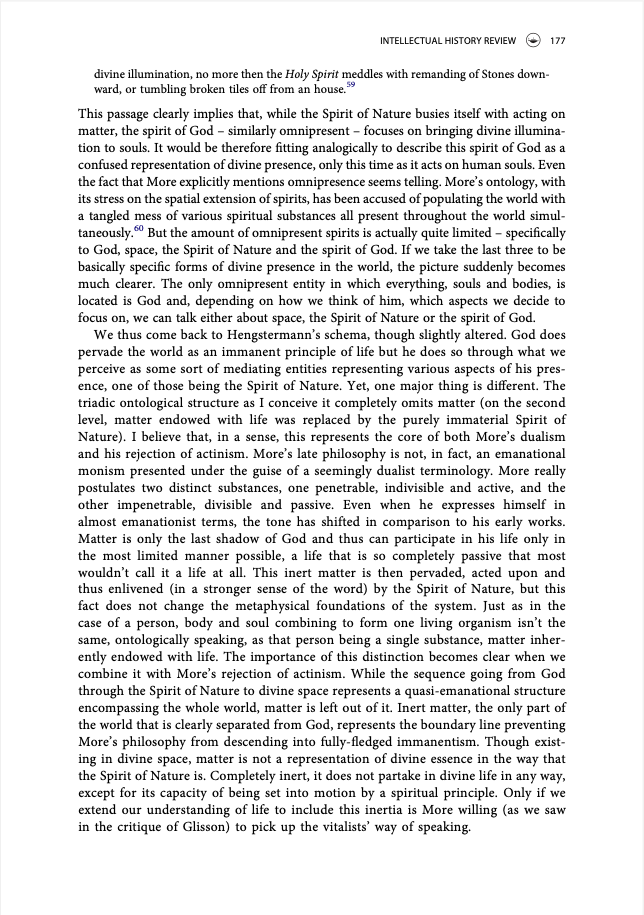
Source: God, space and the Spirit of Nature: Morean trialism revisited

Source: God, space and the Spirit of Nature: Morean trialism revisited

Source: God, space and the Spirit of Nature: Morean trialism revisited
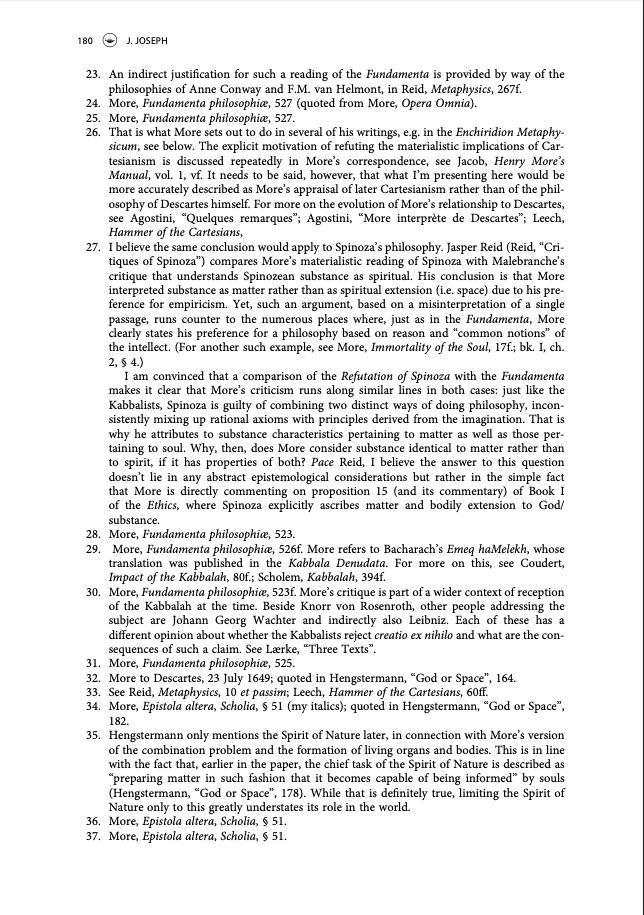
Source: God, space and the Spirit of Nature: Morean trialism revisited

Source: God, space and the Spirit of Nature: Morean trialism revisited
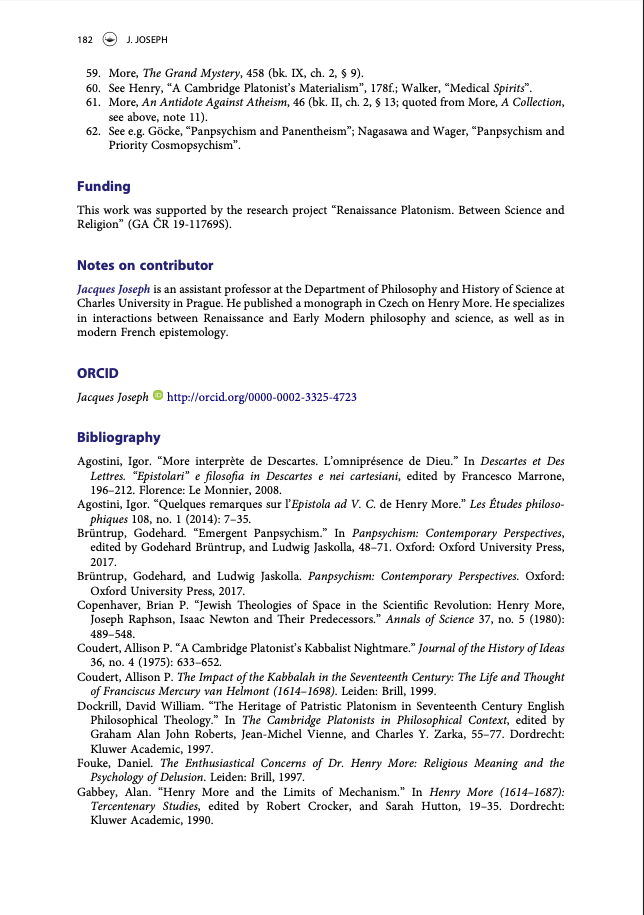
Source: God, space and the Spirit of Nature: Morean trialism revisited
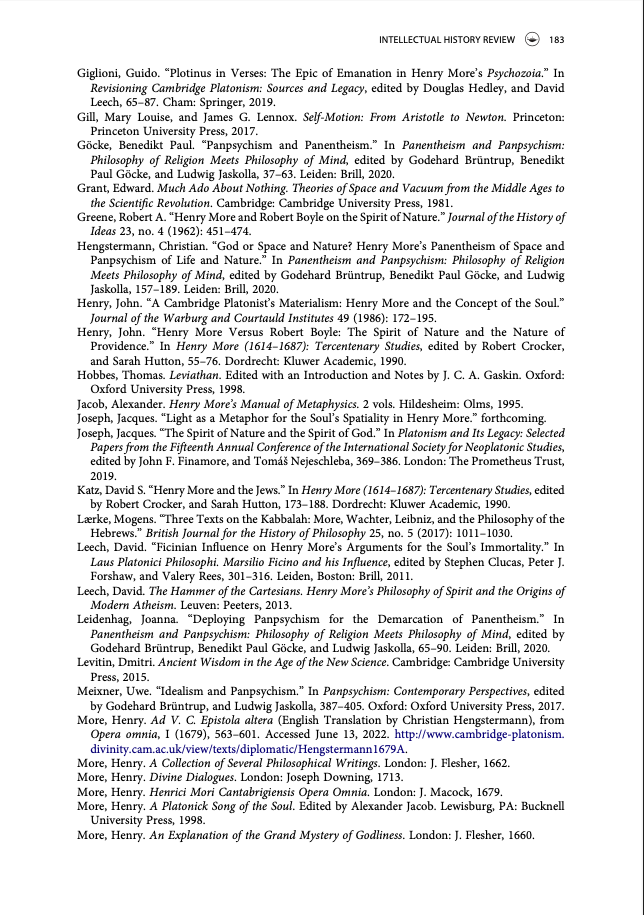
Source: God, space and the Spirit of Nature: Morean trialism revisited

God or Space and Nature? Henry More’s Panentheism of Space and Panpsychism of Life and Nature
Source: God or Space and Nature? Henry More’s Panentheism of Space and Panpsychism of Life and Nature
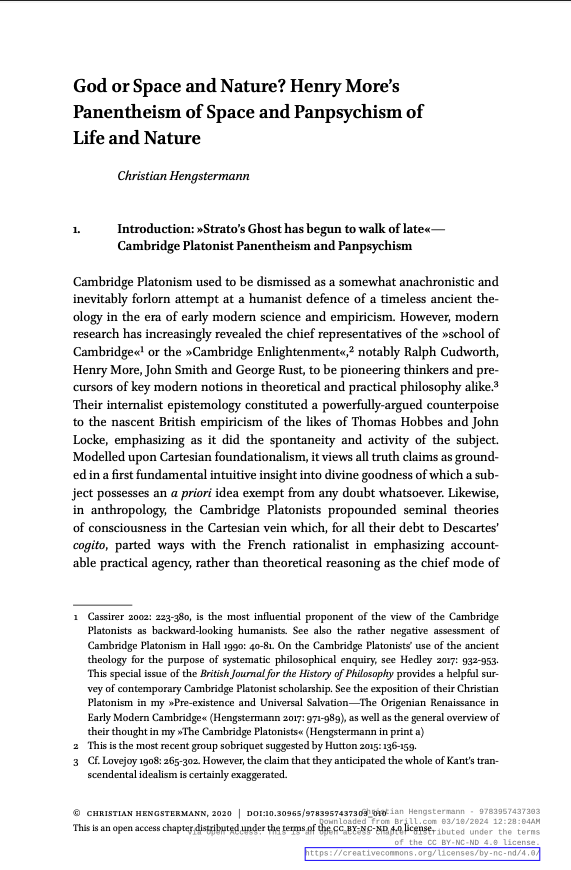
Source: God or Space and Nature? Henry More’s Panentheism of Space and Panpsychism of Life and Nature

Source: God or Space and Nature? Henry More’s Panentheism of Space and Panpsychism of Life and Nature

Source: God or Space and Nature? Henry More’s Panentheism of Space and Panpsychism of Life and Nature
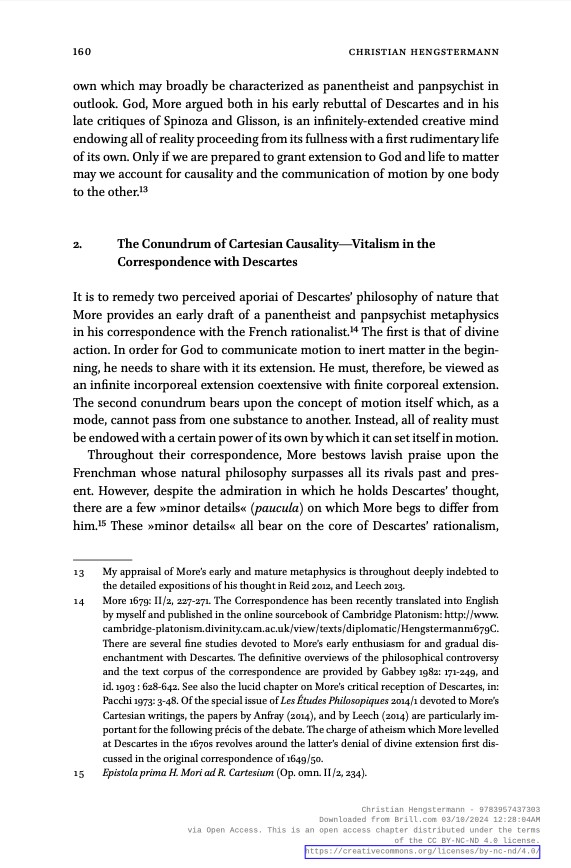
Source: God or Space and Nature? Henry More’s Panentheism of Space and Panpsychism of Life and Nature

Source: God or Space and Nature? Henry More’s Panentheism of Space and Panpsychism of Life and Nature

Source: God or Space and Nature? Henry More’s Panentheism of Space and Panpsychism of Life and Nature

Source: God or Space and Nature? Henry More’s Panentheism of Space and Panpsychism of Life and Nature
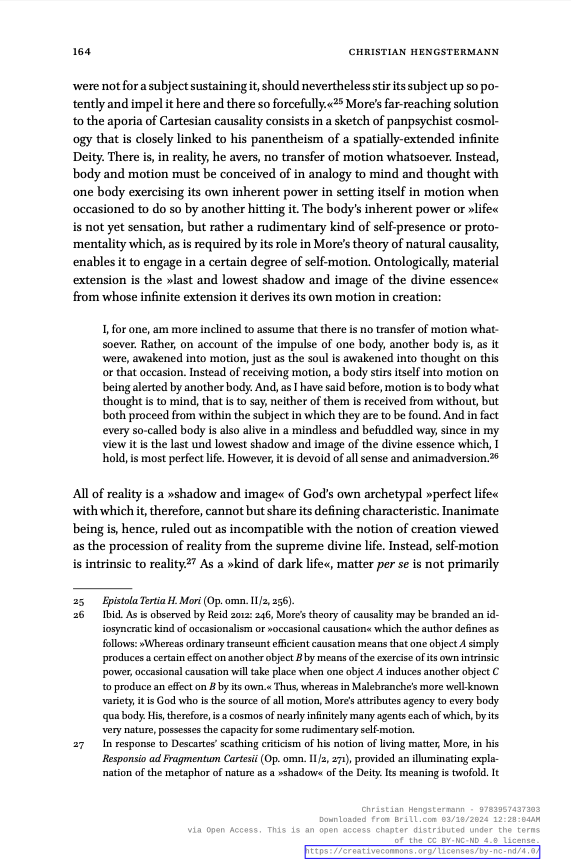
Source: God or Space and Nature? Henry More’s Panentheism of Space and Panpsychism of Life and Nature

Source: God or Space and Nature? Henry More’s Panentheism of Space and Panpsychism of Life and Nature

Source: God or Space and Nature? Henry More’s Panentheism of Space and Panpsychism of Life and Nature

Source: God or Space and Nature? Henry More’s Panentheism of Space and Panpsychism of Life and Nature

Source: God or Space and Nature? Henry More’s Panentheism of Space and Panpsychism of Life and Nature

Source: God or Space and Nature? Henry More’s Panentheism of Space and Panpsychism of Life and Nature

Source: God or Space and Nature? Henry More’s Panentheism of Space and Panpsychism of Life and Nature
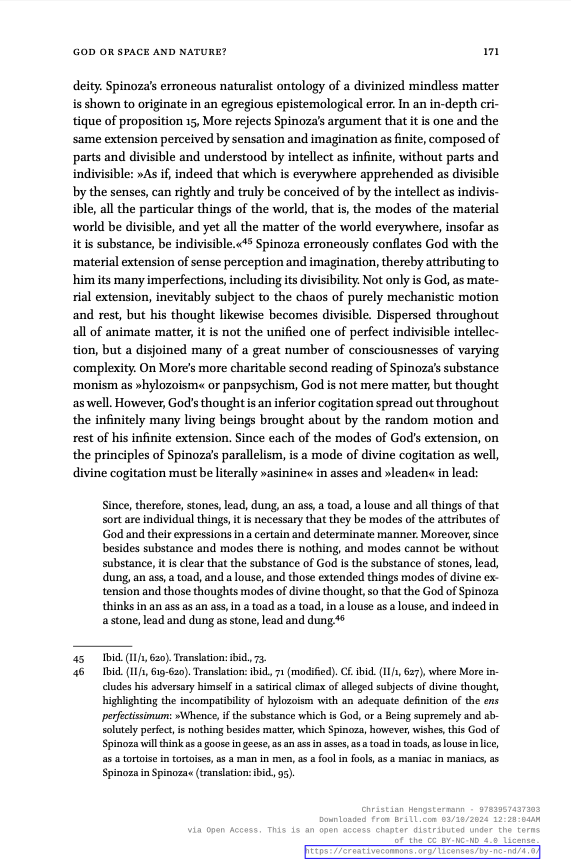
Source: God or Space and Nature? Henry More’s Panentheism of Space and Panpsychism of Life and Nature

Source: God or Space and Nature? Henry More’s Panentheism of Space and Panpsychism of Life and Nature
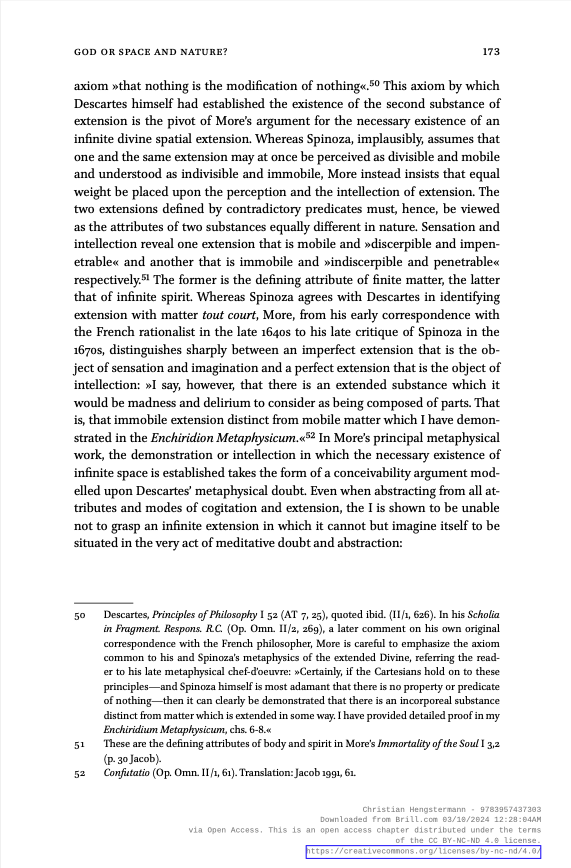
Source: God or Space and Nature? Henry More’s Panentheism of Space and Panpsychism of Life and Nature
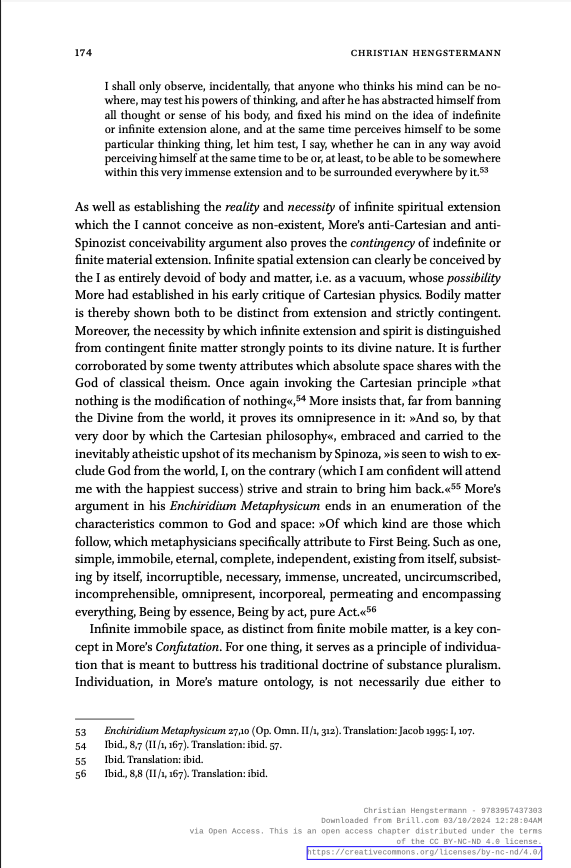
Source: God or Space and Nature? Henry More’s Panentheism of Space and Panpsychism of Life and Nature
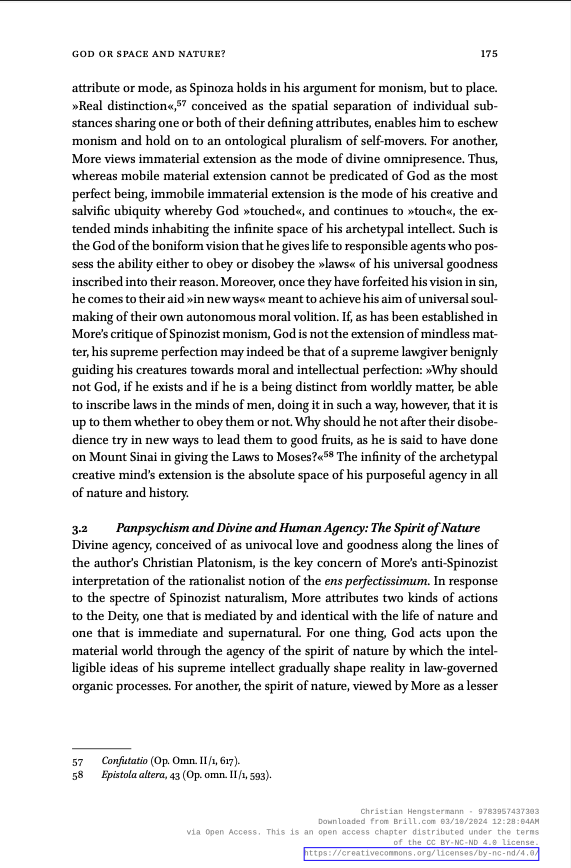
Source: God or Space and Nature? Henry More’s Panentheism of Space and Panpsychism of Life and Nature
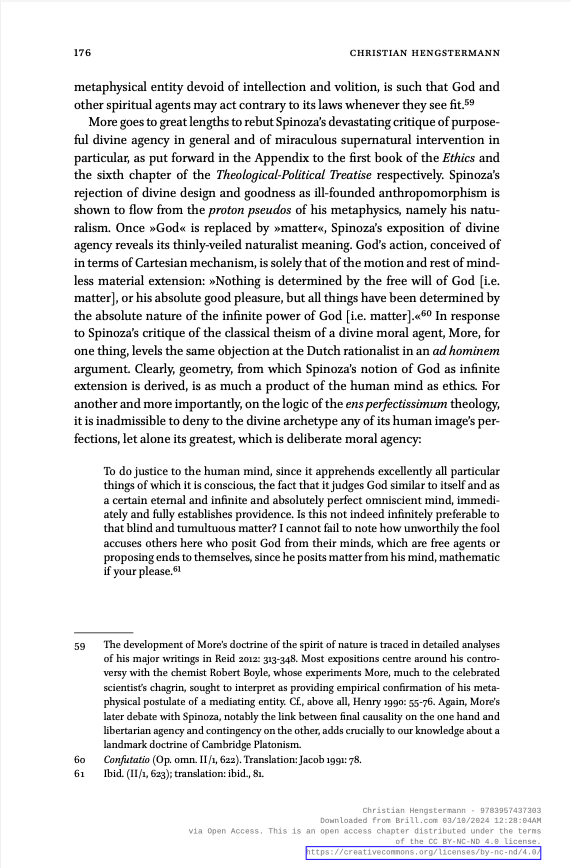
Source: God or Space and Nature? Henry More’s Panentheism of Space and Panpsychism of Life and Nature

Source: God or Space and Nature? Henry More’s Panentheism of Space and Panpsychism of Life and Nature

Source: God or Space and Nature? Henry More’s Panentheism of Space and Panpsychism of Life and Nature

Source: God or Space and Nature? Henry More’s Panentheism of Space and Panpsychism of Life and Nature

Source: God or Space and Nature? Henry More’s Panentheism of Space and Panpsychism of Life and Nature

Source: God or Space and Nature? Henry More’s Panentheism of Space and Panpsychism of Life and Nature
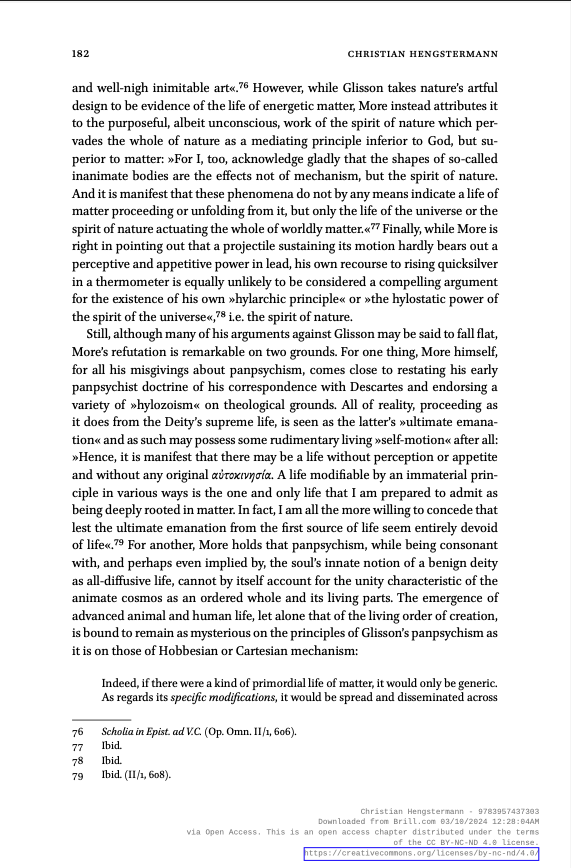
Source: God or Space and Nature? Henry More’s Panentheism of Space and Panpsychism of Life and Nature
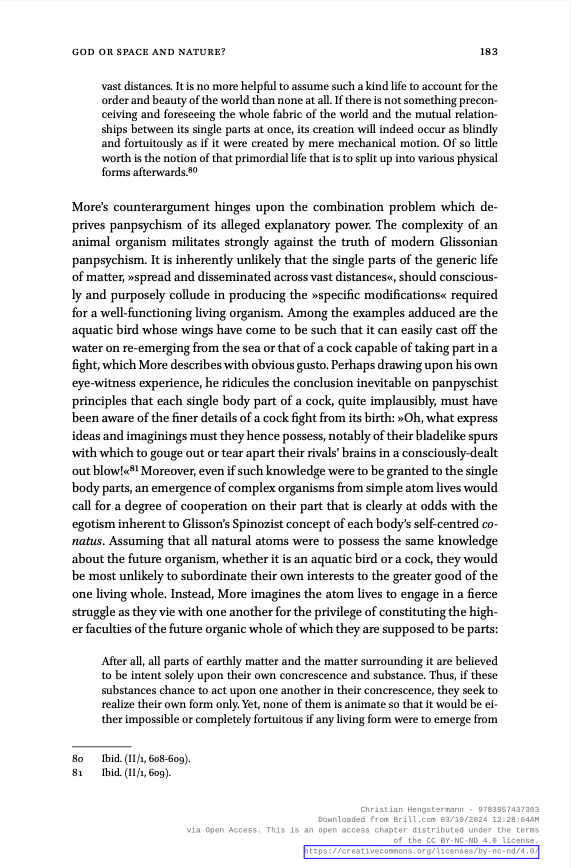
Source: God or Space and Nature? Henry More’s Panentheism of Space and Panpsychism of Life and Nature

Source: God or Space and Nature? Henry More’s Panentheism of Space and Panpsychism of Life and Nature

Source: God or Space and Nature? Henry More’s Panentheism of Space and Panpsychism of Life and Nature

Source: God or Space and Nature? Henry More’s Panentheism of Space and Panpsychism of Life and Nature
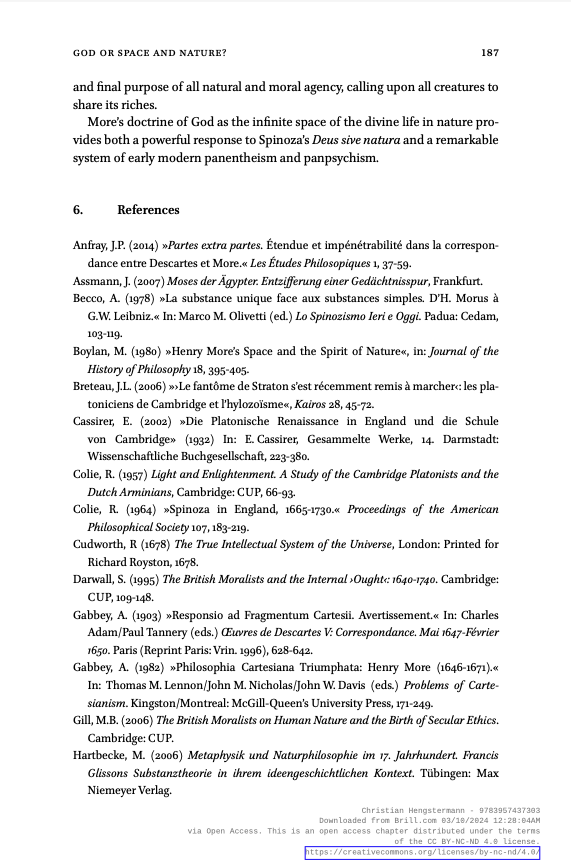
Source: God or Space and Nature? Henry More’s Panentheism of Space and Panpsychism of Life and Nature
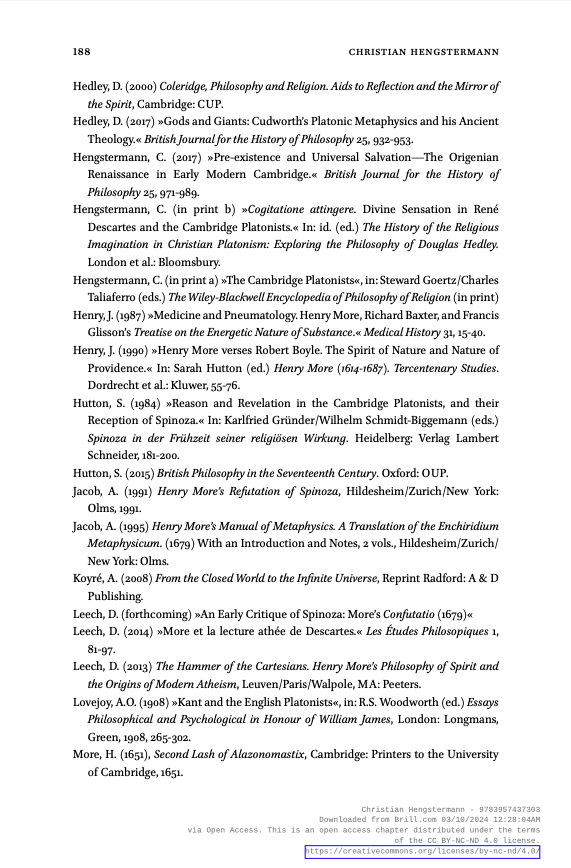
Source: God or Space and Nature? Henry More’s Panentheism of Space and Panpsychism of Life and Nature
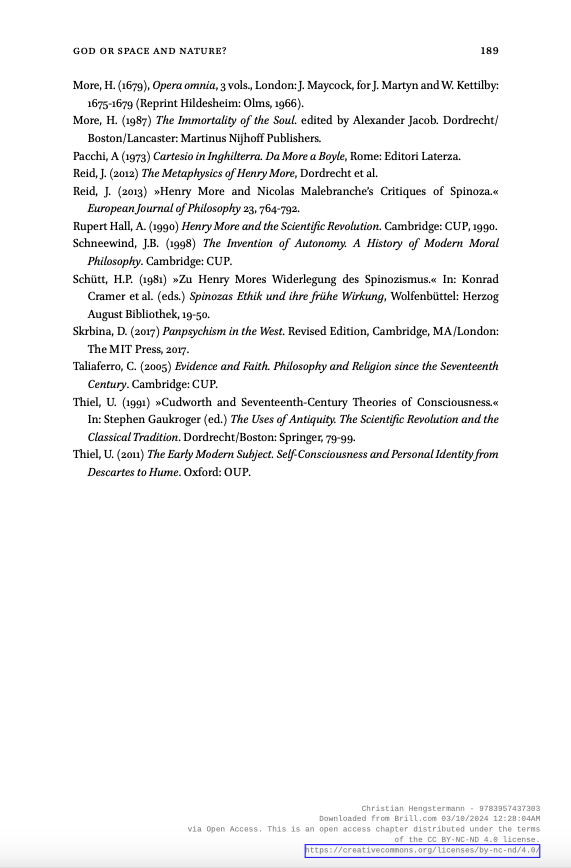
Is Space Created? Reflections on Sankara’s Philosophy and Philosophy of Physics
Source: Is Space Created? Reflections on Sankara’s Philosophy and Philosophy of Physics (Philosophy East and West, 2010)

Source: Is Space Created? Reflections on Sankara’s Philosophy and Philosophy of Physics (Philosophy East and West, 2010)
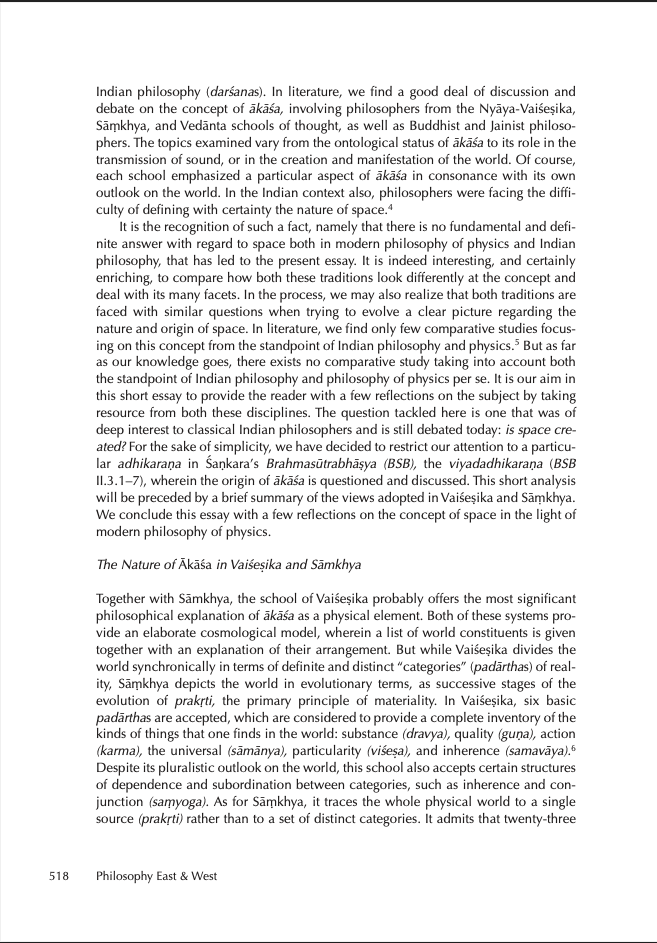
Source: Is Space Created? Reflections on Sankara’s Philosophy and Philosophy of Physics (Philosophy East and West, 2010)
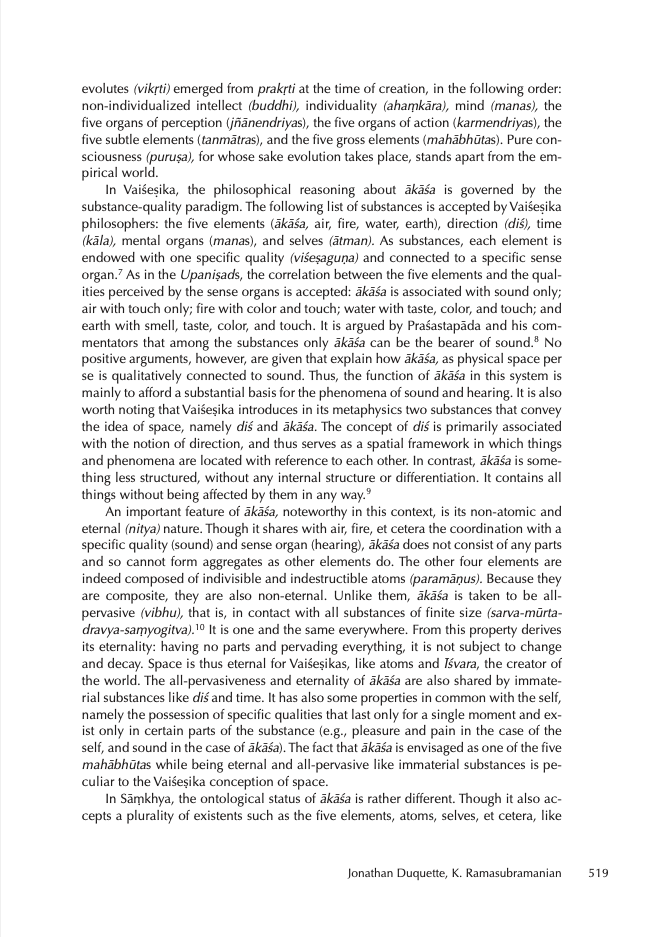
Source: Is Space Created? Reflections on Sankara’s Philosophy and Philosophy of Physics (Philosophy East and West, 2010)
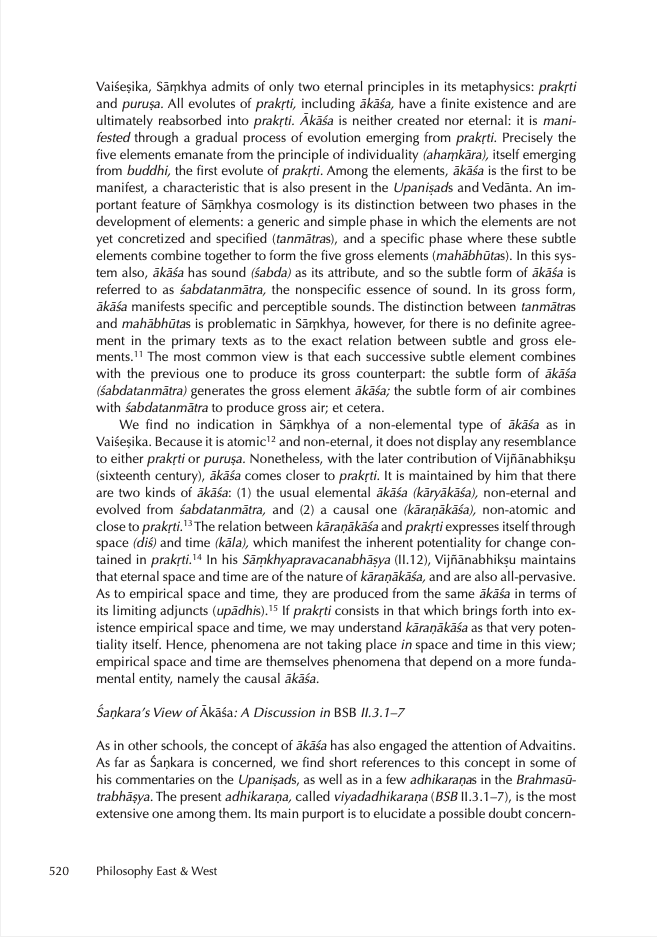
Source: Is Space Created? Reflections on Sankara’s Philosophy and Philosophy of Physics (Philosophy East and West, 2010)

Source: Is Space Created? Reflections on Sankara’s Philosophy and Philosophy of Physics (Philosophy East and West, 2010)

Source: Is Space Created? Reflections on Sankara’s Philosophy and Philosophy of Physics (Philosophy East and West, 2010)
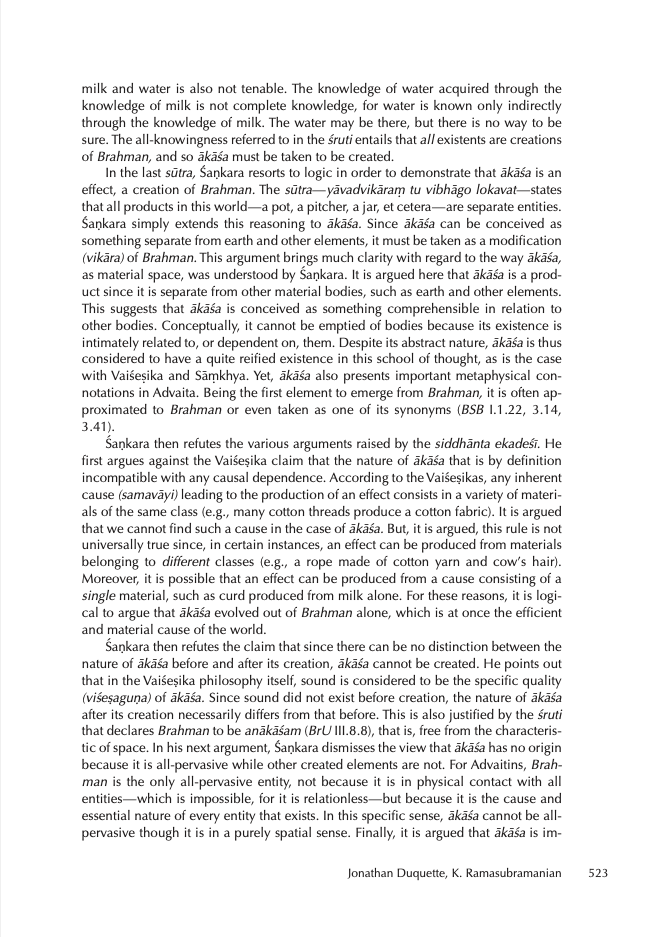
Source: Is Space Created? Reflections on Sankara’s Philosophy and Philosophy of Physics (Philosophy East and West, 2010)

Source: Is Space Created? Reflections on Sankara’s Philosophy and Philosophy of Physics (Philosophy East and West, 2010)

Source: Is Space Created? Reflections on Sankara’s Philosophy and Philosophy of Physics (Philosophy East and West, 2010)

Source: Is Space Created? Reflections on Sankara’s Philosophy and Philosophy of Physics (Philosophy East and West, 2010)

Source: Is Space Created? Reflections on Sankara’s Philosophy and Philosophy of Physics (Philosophy East and West, 2010)

Source: Is Space Created? Reflections on Sankara’s Philosophy and Philosophy of Physics (Philosophy East and West, 2010)

Source: Is Space Created? Reflections on Sankara’s Philosophy and Philosophy of Physics (Philosophy East and West, 2010)

Source: Is Space Created? Reflections on Sankara’s Philosophy and Philosophy of Physics (Philosophy East and West, 2010)
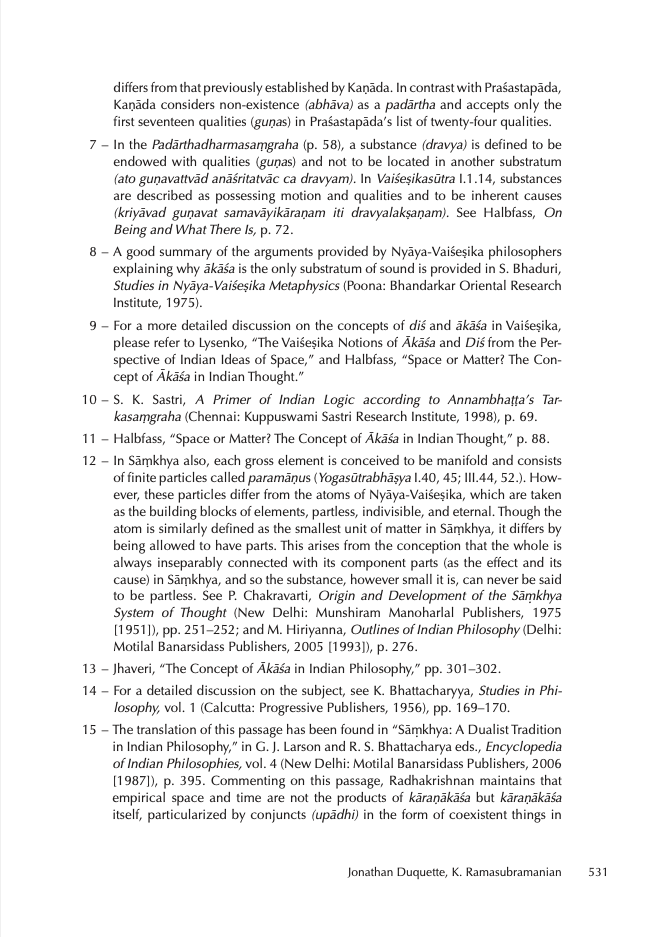
Source: Is Space Created? Reflections on Sankara’s Philosophy and Philosophy of Physics (Philosophy East and West, 2010)

Source: Is Space Created? Reflections on Sankara’s Philosophy and Philosophy of Physics (Philosophy East and West, 2010)

Space in relation to God or Absolute in the Thought of Henry More and Śaṅkara: An Exercise in Comparative Philosophy
Source: Space in relation to God or Absolute in the Thought of Henry More and Śaṅkara: An Exercise in Comparative Philosophy (Numen: International Review for the History of Religions, 2013)

Source: Space in relation to God or Absolute in the Thought of Henry More and Śaṅkara: An Exercise in Comparative Philosophy (Numen: International Review for the History of Religions, 2013)
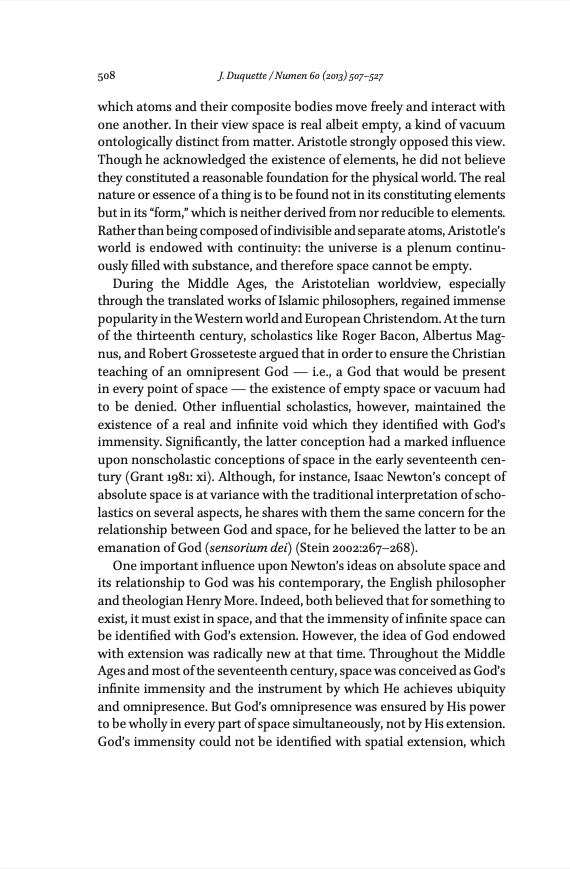
Source: Space in relation to God or Absolute in the Thought of Henry More and Śaṅkara: An Exercise in Comparative Philosophy (Numen: International Review for the History of Religions, 2013)
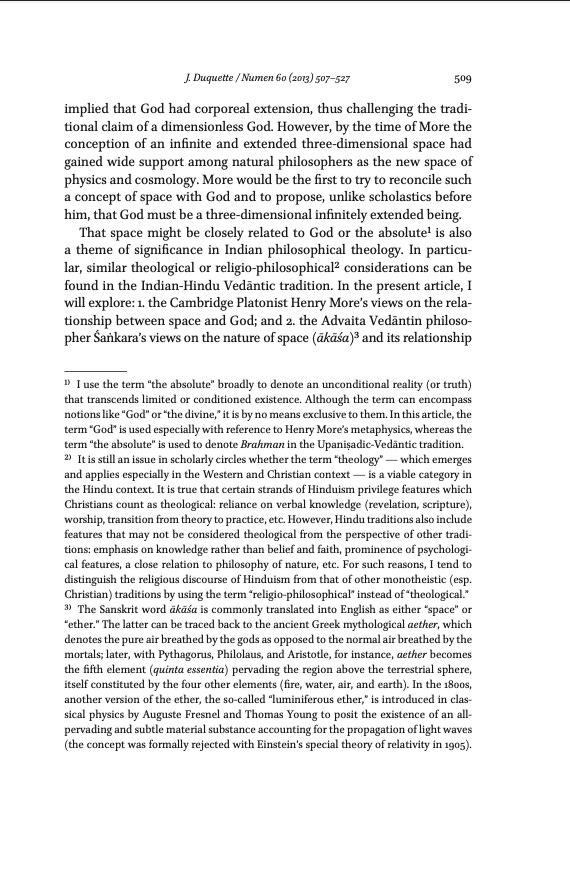
Source: Space in relation to God or Absolute in the Thought of Henry More and Śaṅkara: An Exercise in Comparative Philosophy (Numen: International Review for the History of Religions, 2013)

Source: Space in relation to God or Absolute in the Thought of Henry More and Śaṅkara: An Exercise in Comparative Philosophy (Numen: International Review for the History of Religions, 2013)
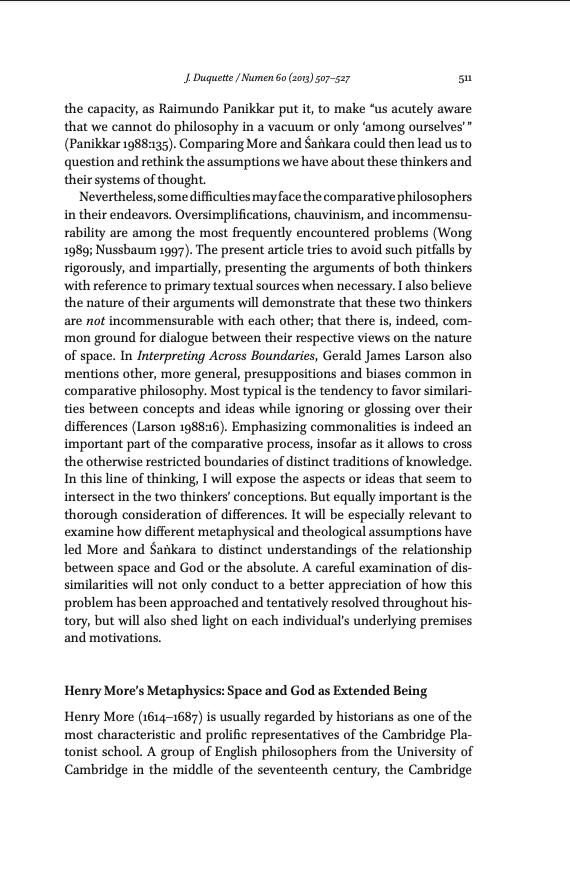
Source: Space in relation to God or Absolute in the Thought of Henry More and Śaṅkara: An Exercise in Comparative Philosophy (Numen: International Review for the History of Religions, 2013)

Source: Space in relation to God or Absolute in the Thought of Henry More and Śaṅkara: An Exercise in Comparative Philosophy (Numen: International Review for the History of Religions, 2013)
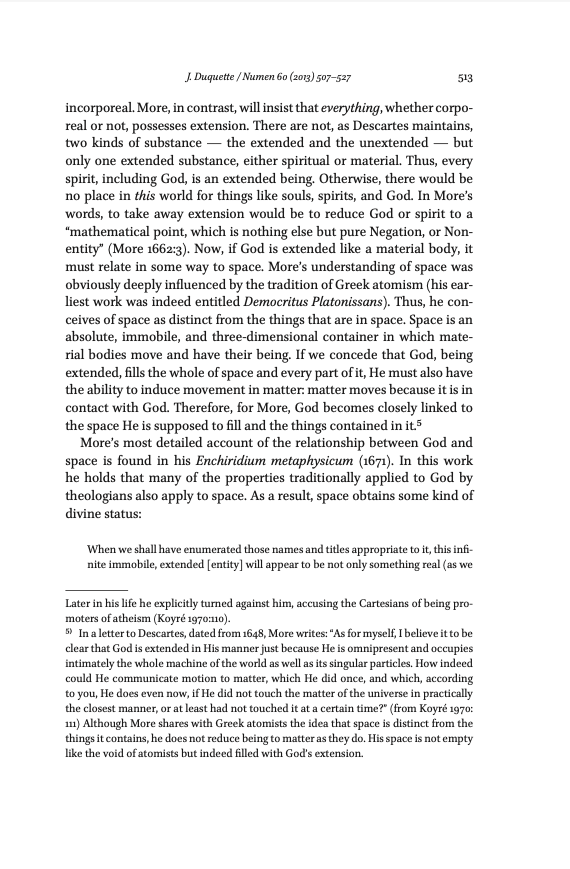
Source: Space in relation to God or Absolute in the Thought of Henry More and Śaṅkara: An Exercise in Comparative Philosophy (Numen: International Review for the History of Religions, 2013)
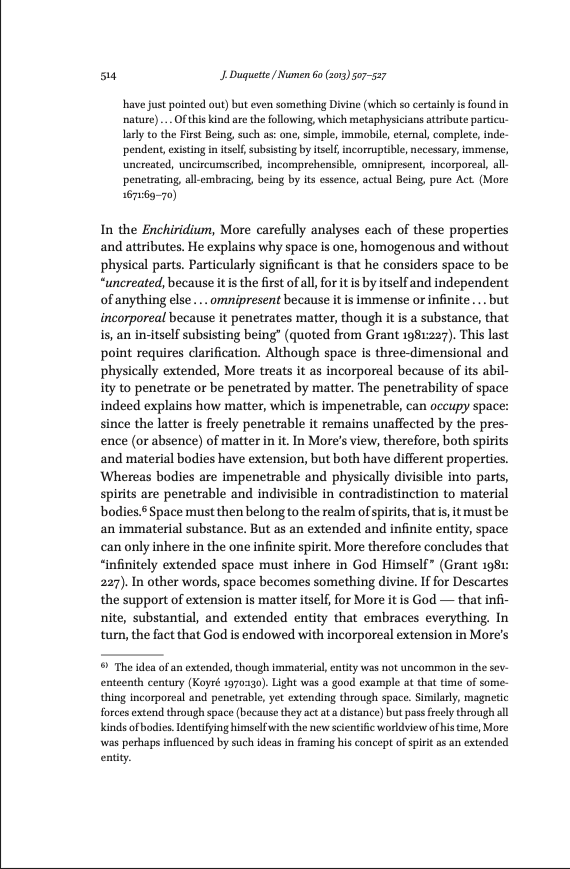
Source: Space in relation to God or Absolute in the Thought of Henry More and Śaṅkara: An Exercise in Comparative Philosophy (Numen: International Review for the History of Religions, 2013)

Source: Space in relation to God or Absolute in the Thought of Henry More and Śaṅkara: An Exercise in Comparative Philosophy (Numen: International Review for the History of Religions, 2013)
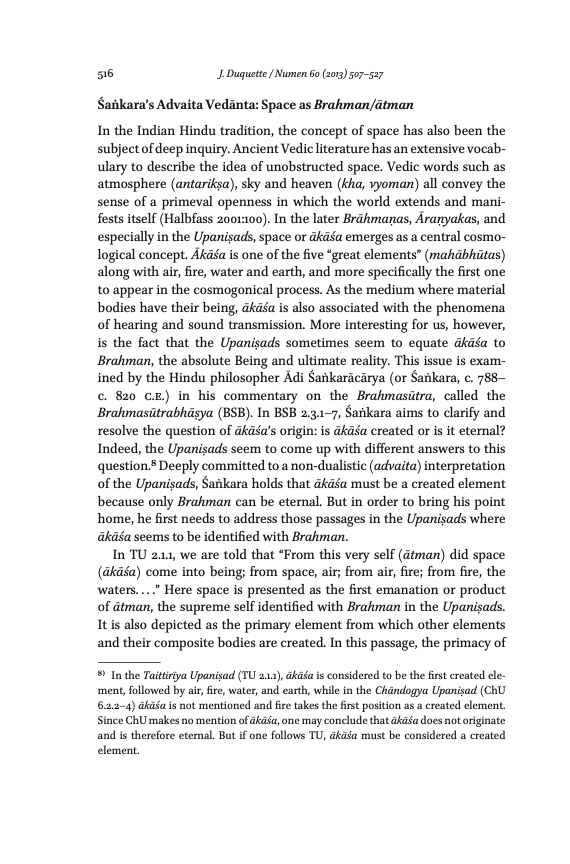
Source: Space in relation to God or Absolute in the Thought of Henry More and Śaṅkara: An Exercise in Comparative Philosophy (Numen: International Review for the History of Religions, 2013)
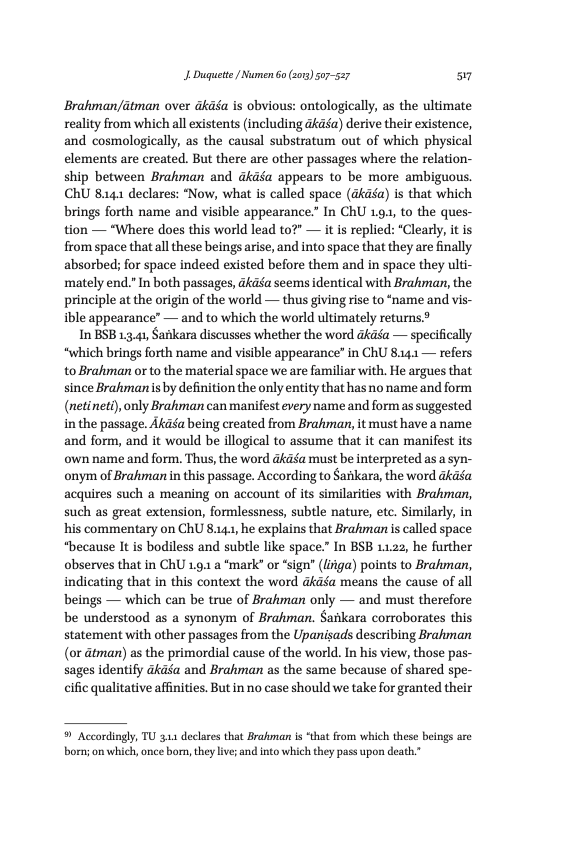
Source: Space in relation to God or Absolute in the Thought of Henry More and Śaṅkara: An Exercise in Comparative Philosophy (Numen: International Review for the History of Religions, 2013)
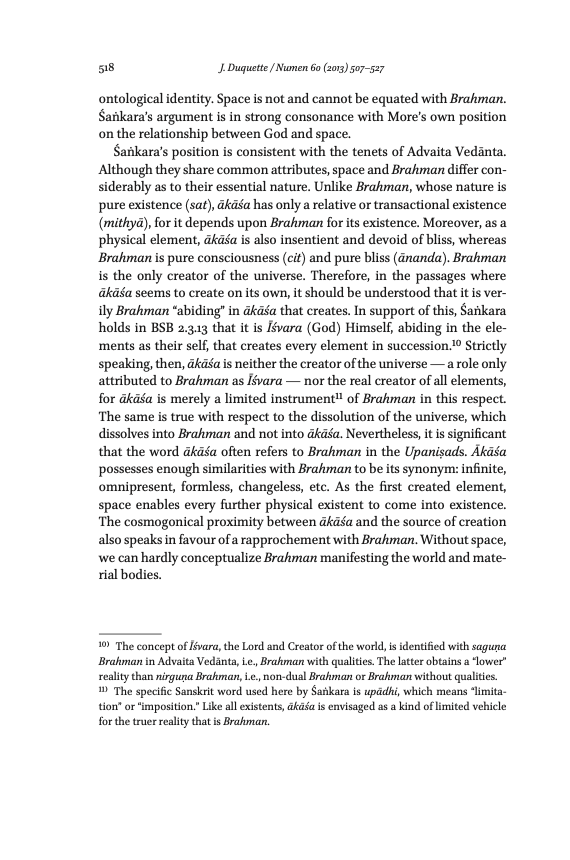
Source: Space in relation to God or Absolute in the Thought of Henry More and Śaṅkara: An Exercise in Comparative Philosophy (Numen: International Review for the History of Religions, 2013)
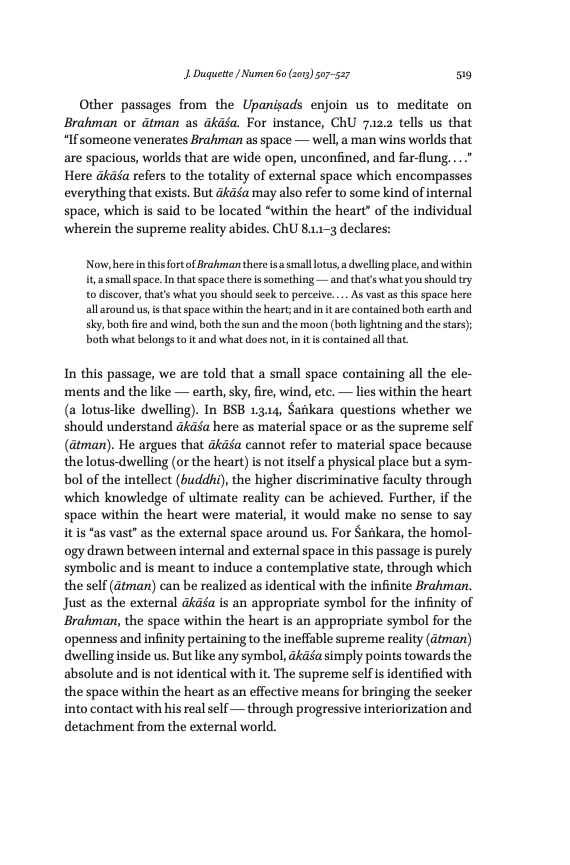
Source: Space in relation to God or Absolute in the Thought of Henry More and Śaṅkara: An Exercise in Comparative Philosophy (Numen: International Review for the History of Religions, 2013)
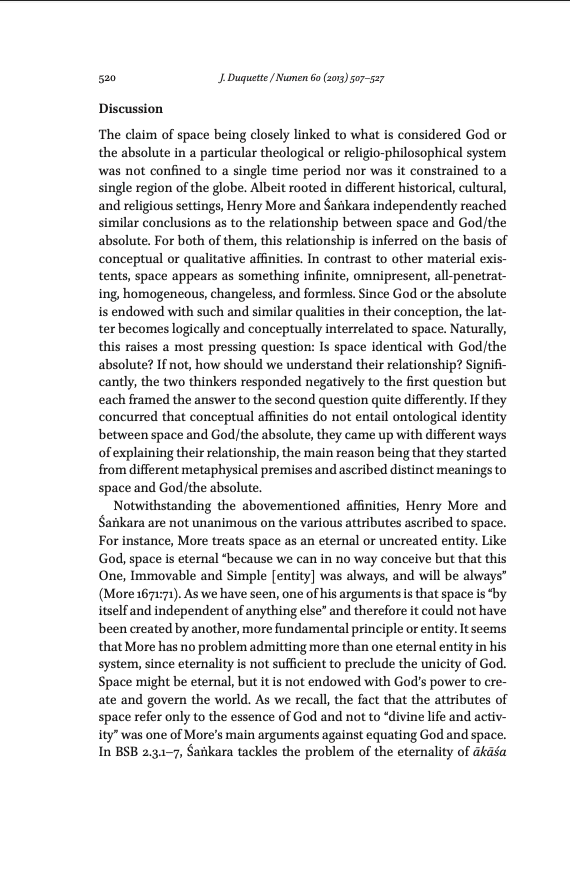
Source: Space in relation to God or Absolute in the Thought of Henry More and Śaṅkara: An Exercise in Comparative Philosophy (Numen: International Review for the History of Religions, 2013)
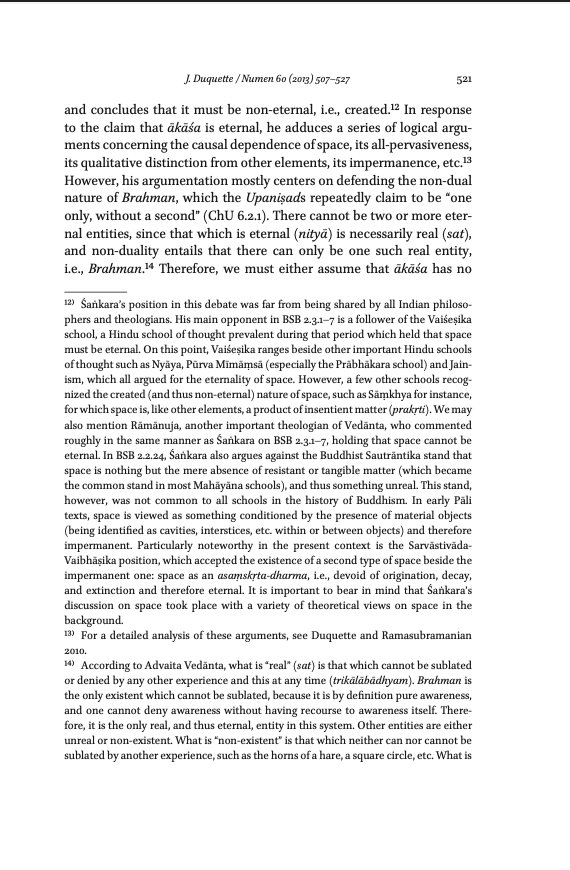
Source: Space in relation to God or Absolute in the Thought of Henry More and Śaṅkara: An Exercise in Comparative Philosophy (Numen: International Review for the History of Religions, 2013)

Source: Space in relation to God or Absolute in the Thought of Henry More and Śaṅkara: An Exercise in Comparative Philosophy (Numen: International Review for the History of Religions, 2013)
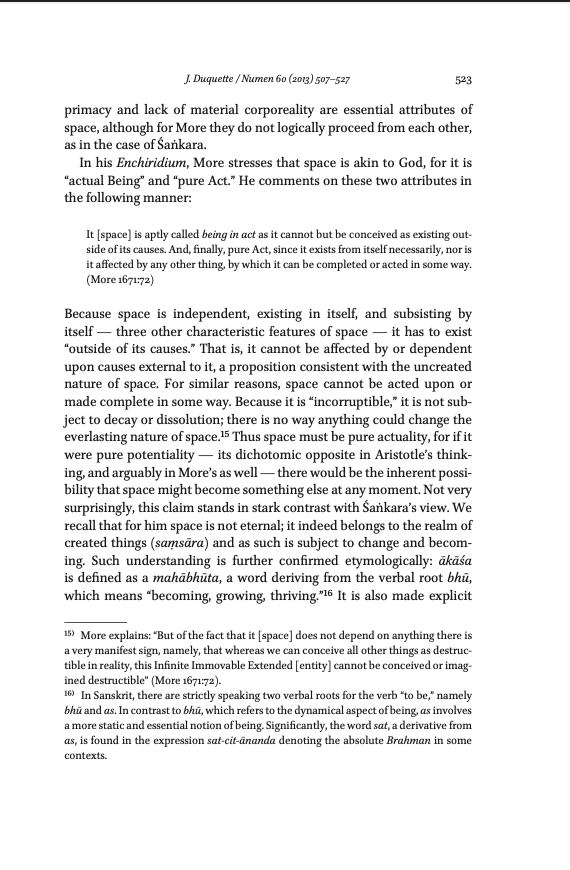
Source: Space in relation to God or Absolute in the Thought of Henry More and Śaṅkara: An Exercise in Comparative Philosophy (Numen: International Review for the History of Religions, 2013)
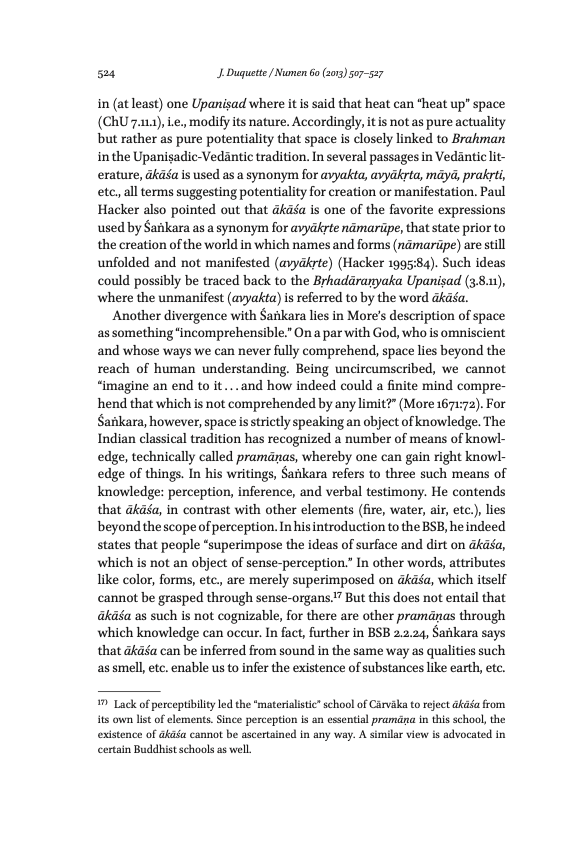
Source: Space in relation to God or Absolute in the Thought of Henry More and Śaṅkara: An Exercise in Comparative Philosophy (Numen: International Review for the History of Religions, 2013)

Source: Space in relation to God or Absolute in the Thought of Henry More and Śaṅkara: An Exercise in Comparative Philosophy (Numen: International Review for the History of Religions, 2013)

Source: Space in relation to God or Absolute in the Thought of Henry More and Śaṅkara: An Exercise in Comparative Philosophy (Numen: International Review for the History of Religions, 2013)

Absolute Space and the Structure of Consciousness in Advaita Vedānta Philosophy
Source: Absolute Space and the Structure of Consciousness in Advaita Vedānta Philosophy

Source: Absolute Space and the Structure of Consciousness in Advaita Vedānta Philosophy
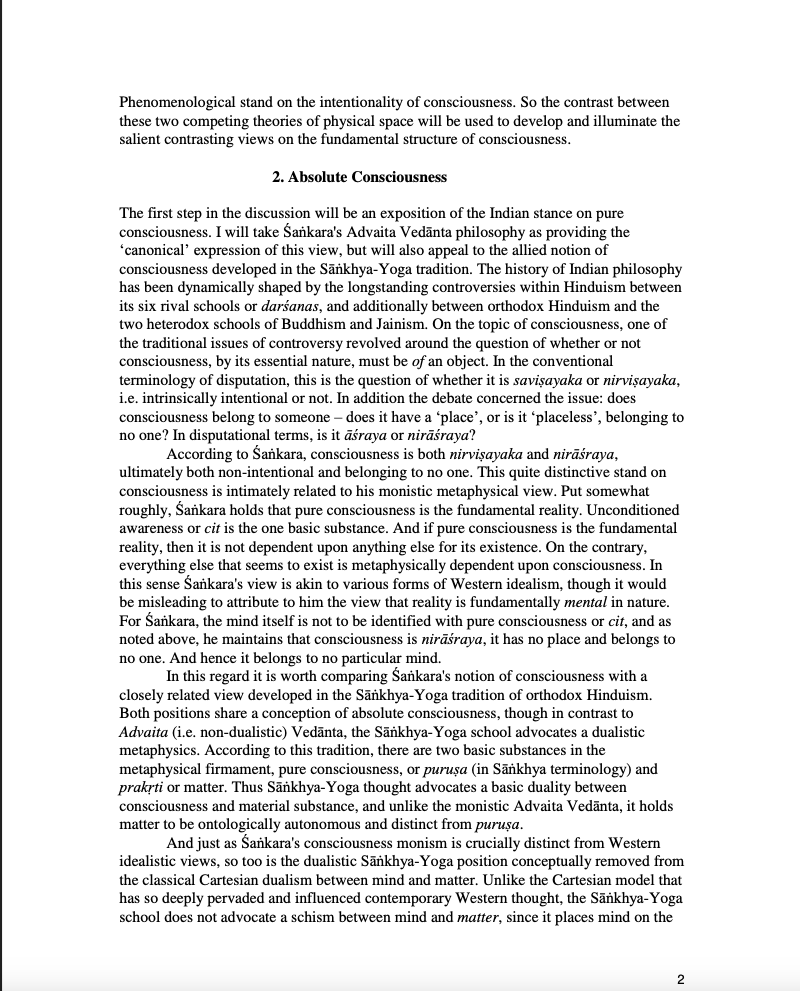
Source: Absolute Space and the Structure of Consciousness in Advaita Vedānta Philosophy
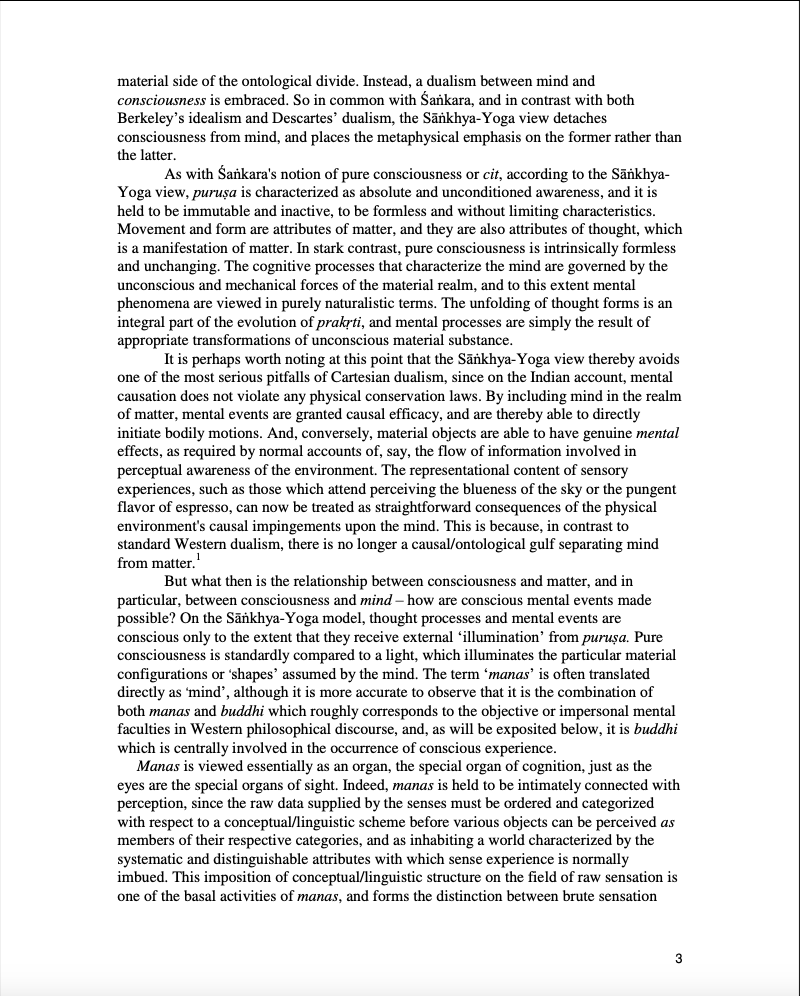
Source: Absolute Space and the Structure of Consciousness in Advaita Vedānta Philosophy
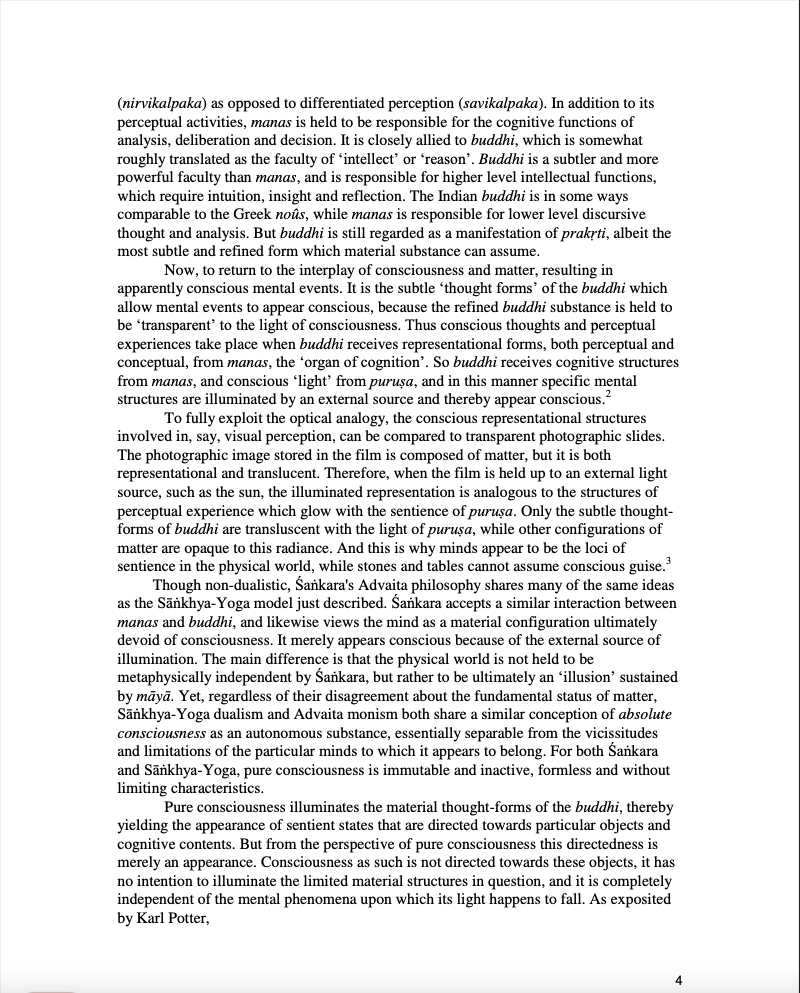
Source: Absolute Space and the Structure of Consciousness in Advaita Vedānta Philosophy
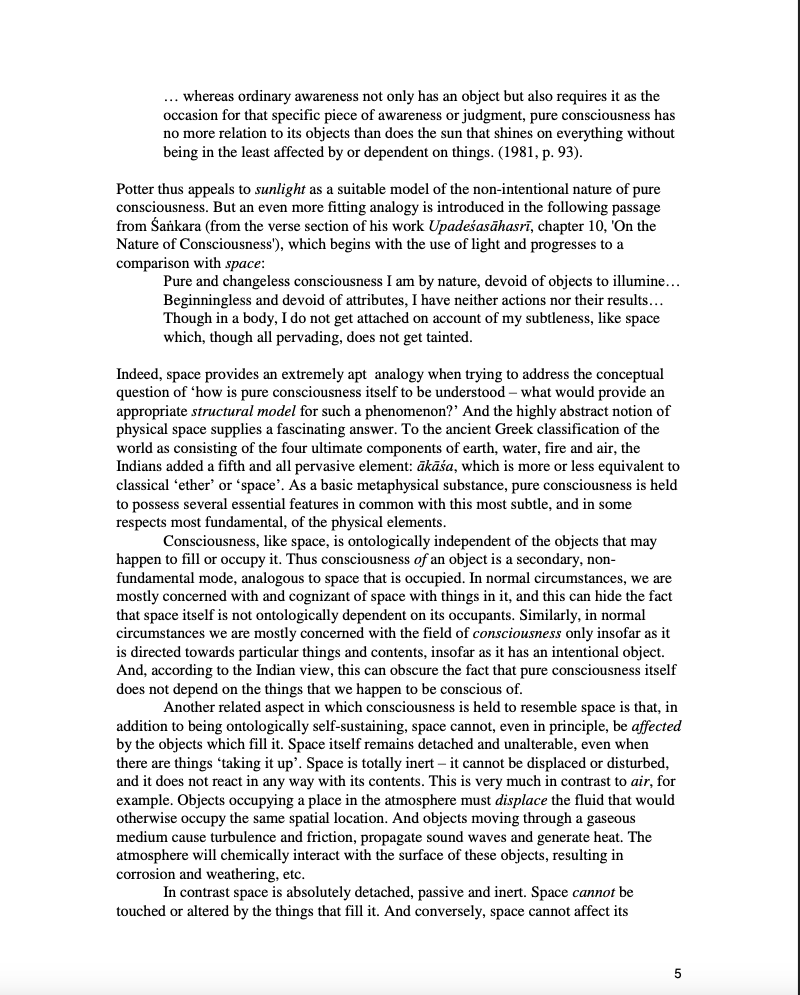
Source: Absolute Space and the Structure of Consciousness in Advaita Vedānta Philosophy

Source: Absolute Space and the Structure of Consciousness in Advaita Vedānta Philosophy

Source: Absolute Space and the Structure of Consciousness in Advaita Vedānta Philosophy

Source: Absolute Space and the Structure of Consciousness in Advaita Vedānta Philosophy

Source: Absolute Space and the Structure of Consciousness in Advaita Vedānta Philosophy

Source: Absolute Space and the Structure of Consciousness in Advaita Vedānta Philosophy

Source: Absolute Space and the Structure of Consciousness in Advaita Vedānta Philosophy
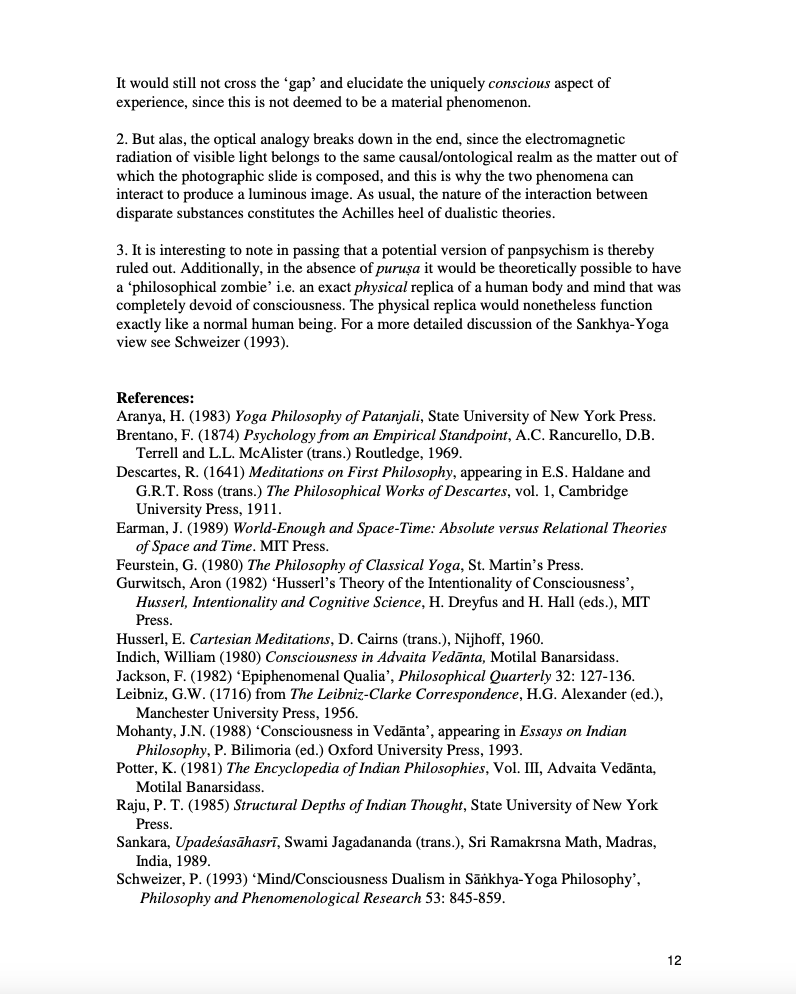
Source: Absolute Space and the Structure of Consciousness in Advaita Vedānta Philosophy

My Related Posts
You can search for these using Search Posts feature in right sidebar.
- Purush – The Cosmic Man
- The Transcendental Self
- Ervin Laszlo and the Akashic Field
- Five Types of Systems Philosophy
- Meditations on Emptiness and Fullness
- Charles Sanders Peirce’s Continuum
- Hua Yan Buddhism : Reflecting Mirrors of Reality
- Indira’s Net: On Interconnectedness
- Indira’s Pearls: Apollonian Gasket, Circle and Sphere Packing
- The Great Chain of Being
- Holons and Holarchy
- On Synchronicity
- Process Physics, Process Philosophy
- Networks and Boundaries
- Networks and Hierarchies
Key Sources of Research
Henry More
https://plato.stanford.edu/entries/henry-more
“A Cambridge Platonist’s Materialism: Henry More and the Concept of Soul.”
Henry, John.
Journal of the Warburg and Courtauld Institutes 49 (1986): 172–95. https://doi.org/10.2307/751295.
Publication History of Henry More’s Works,
https://www.cambridge-platonism.divinity.cam.ac.uk/view/texts/normalised/about-the-cambridge-platonists/publication-history/more-henry, accessed 2024-03-09.
God or Space and Nature? Henry More’s Panentheism of Space and Panpsychism of Life and Nature
In: Panentheism and Panpsychism
Author: Christian Hengstermann
Type: Chapter
Pages: 157–189
DOI: https://doi.org/10.30965/9783957437303_010
https://brill.com/display/book/9783957437303/BP000016.xml?language=enu0026amp;body=fullhtml-60832
Henry More: The Immortality of The Soul
https://www.academia.edu/7071418/Henry_More_The_Immortality_of_The_Soul
Imagination between Physick and Philosophy: On the Central Role of the Imagination in the Work of Henry More
2008, Intellectual History Review
Henry More’s space and the spirit of nature
2008, Journal of the History of Philosophy
https://www.academia.edu/72506764/Henry_Mores_space_and_the_spirit_of_nature?uc-g-sw=2024476
Space in relation to God or Absolute in the Thought of Henry More and Śaṅkara: An Exercise in Comparative Philosophy (Numen: International Review for the History of Religions, 2013)
Is Space Created? Reflections on Sankara’s Philosophy and Philosophy of Physics (Philosophy East and West, 2010)
More Info: Co-authored with Prof. K. Ramasubramanian (IIT Bombay, India). Published in Philosophy East and West, Vol.60, No.4, 2010, pp. 517-533
The Emergence of Spacetime from the Akasha
https://www.academia.edu/15540494/The_Emergence_of_Spacetime_from_the_Akasha?uc-g-sw=834162
DEMYSTIFYING THE AKASHA Consciousness and the Quantum Vacuum
Towards reconstruction of the dialogue between Modern Physics and Buddhist Philosophy: an inquiry into the concepts of Quantum Vacuum and Ālayavijñāna
Quantum Theory and Consciousness: Insights from Advaita Philosophy
https://www.academia.edu/111476054/Quantum_Theory_and_Consciousness_Insights_from_Advaita_Philosophy
Mind Within Matter: Science, the Occult, and the (Meta)Physics of Ether and Akasha
2016, Zygon®
The evolution of Henry more’s theory of divine absolute space.
Reid, Jasper William (2007).
Journal of the History of Philosophy 45 (1):79-102.
https://philpapers.org/rec/REITEO
Space Before God? A Problem in Newton’s Metaphysics.
Connolly, Patrick J. (2015).
Philosophy 90 (1):83-106.
https://philpapers.org/rec/CONSBG
Henry More on Spirits, Light, and Immaterial Extension.
Blank, Andreas (2013).
British Journal for the History of Philosophy 21 (5):857 – 878.
https://philpapers.org/rec/BLAHMO
The Metaphysics of Henry More.
Reid, Jasper (2012).
Springer.
https://philpapers.org/rec/REITMO-7
A cambridge platonist’s materialism: Henry more and the concept of soul.
Henry, John (1986).
Journal of the Warburg and Courtauld Institutes 49 (1):172-195.
https://philpapers.org/rec/HENACP
Henry More on Material and Spiritual Extension.
Reid, Jasper (2003).
Dialogue 42 (3):531-.
https://philpapers.org/rec/REIHMO-2
Henry More: The Rational Theology of a Cambridge Platonist.
Lichtenstein, Aharon (2013).
Harvard University Press.
https://philpapers.org/rec/LICHMT
Fortunio Liceti on Mind, Light, and Immaterial Extension.
Blank, Andreas (2013).
Perspectives on Science 21 (3):358-378.
https://philpapers.org/rec/BLAFLO
The spatial presence of spirits among the cartesians.
Reid, Jasper William (2008).
Journal of the History of Philosophy 46 (1):91-117.
https://philpapers.org/rec/REITSP
More, Henry.
Strazzoni, Andrea (2016).
In Marco Sgarbi (ed.), Encyclopedia of Renaissance Philosophy. Cham: Springer. pp. 2242-2245.
https://philpapers.org/rec/STRMHB
A Philosophical Reappraisal of Henry More’s Theory of Divine Space
This dissertation is submitted for the degree of Doctor of Philosophy
JONATHAN DAVID LYONHART
SIDNEY SUSSEX COLLEGE
UNIVERSITY OF CAMBRIDGE CAMBRIDGE, UK September 2020
https://www.repository.cam.ac.uk/items/5d679a22-daf6-4257-8175-ec901e79bcad
Essay Review: Henry More and Newton’s Gravity,
Henry, J. (1993).
Henry More: Magic, Religion and Experiment. A. RUPERT HALL (Basil
Blackwell, Oxford, 1990).
History of Science, 31(1), 83-97. https://doi.org/10.1177/007327539303100104
“Miraculous and supernaturall effects” in the works of Henry More
Thesis submitted for the Degree of Doctor of Philosophy: 2019
Clare Fitzpatrick
Department of History, Classics and Archaeology Birkbeck College, University of London
https://eprints.bbk.ac.uk/id/eprint/40434
‘9 Newton’s Ontology of Omnipresence and Infinite Space’,
Mcguire, J. E., and Edward Slowik,
in Daniel Garber, and Donald Rutherford (eds), Oxford Studies in Early Modern Philosophy Volume VI, Oxford Studies in Early Modern Philosophy (Oxford, 2012; online edn, Oxford Academic, 24 Jan. 2013), https://doi.org/10.1093/acprof:oso/9780199659593.003.0009, accessed 22 Mar. 2024
https://academic.oup.com/book/6434/chapter-abstract/150260392?redirectedFrom=fulltext
“Newton on God’s Relation to Space and Time: The Cartesian Framework”
Gorham, Geoffrey.
Archiv für Geschichte der Philosophie 93, no. 3 (2011): 281-320. https://doi.org/10.1515/agph.2011.013
https://www.degruyter.com/document/doi/10.1515/agph.2011.013/html#Chicago
Henry More and the development of absolute time
Emily Thomas
University of Groningen, Faculty of Theology & Religious Studies, Oude Boteringestraat 38, 9712 GK Groningen, Netherlands
Studies in History and Philosophy of Science 54 (2015) 11e19
‘Henry More and the Development of Absolute Time’,
Thomas, Emily,
Absolute Time: Rifts in Early Modern British Metaphysics (Oxford, 2018; online edn, Oxford Academic, 24 May 2018), https://doi.org/10.1093/oso/9780198807933.003.0003, accessed 23 Mar. 2024.
https://academic.oup.com/book/11493/chapter-abstract/160215961?redirectedFrom=fulltext
This chapter explores the first British account of absolute time or duration, developed in the mid-seventeenth century by the Cambridge Platonist Henry More. It explores the evolution of More’s views on time; the relationship More perceives between time, duration, and God; and the motivations underlying More’s views. It argues that, as More’s views developed across the course of his career, an asymmetry emerged in his mature work with regard to divine presence: God is extendedly present in space, yet holenmerically present in time. The chapter concludes with a note on the influence More may have wielded over later British thinkers.
‘Newton’s De Gravitatione on God and his Emanative Effects’,
Thomas, Emily,
Absolute Time: Rifts in Early Modern British Metaphysics (Oxford, 2018; online edn, Oxford Academic, 24 May 2018), https://doi.org/10.1093/oso/9780198807933.003.0007, accessed 23 Mar. 2024.
https://academic.oup.com/book/11493/chapter-abstract/160220273
Isaac Newton’s space and time absolutism is infamous, and would prove hugely influential. This chapter explores Newton’s early manuscript De Gravitatione, and asks two questions of it. First, what are time and space? In answer, it builds on John Carriero’s 1990 ‘Causation’ reading, arguing that Newton was drawing on Henry More’s account of emanative causation. It goes on to read Newton as holding that time and space are real but not really distinct from God, and they should be understood as incorporeal dimensions. Second, how is God present in time and space? It answers that Newton’s God is holenmeric, not extended.
Locke on Space, Time and God
GEOFFREY GORHAM
Macalester College
Ergo: An Open Journal of Philosophy
“Cudworth and More on Immaterial Extension: A New Text with Analysis”,
Leisinger, M., (2023)
Journal of Modern Philosophy 5: 5. doi: https://doi.org/10.25894/jmp.1909
https://jmphil.org/article/id/1909
Newton on God’s Relation to Space and Time: The Cartesian Framework.
Gorham, Geoffrey. (2011).
Archiv für Geschichte der Philosophie. 93. 10.1515/agph.2011.013.
https://www.academia.edu/10054664/Newton_on_Gods_Relation_to_Space_and_Time
HENRY MORE: BIBLIOGRAPHY
(Written by David Leech, 28 October 2013; revised 2017)
“Environmental Ethics and the Cambridge Platonist Henry More”
Lyonhart, Jonathan David. 2024.
Religions 15, no. 2: 157. https://doi.org/10.3390/rel15020157
https://www.mdpi.com/2077-1444/15/2/157
God, space and the Spirit of Nature: Morean trialism revisited,
Jacques Joseph (2024)
Intellectual History Review, 34:1, 165-184, DOI: 10.1080/17496977.2023.2287121
https://www.tandfonline.com/doi/full/10.1080/17496977.2023.2287121
Space God: Rejudging a Debate between More, Newton, and Einstein
(Studies in the Doctrine of God) Paperback – October 19, 2023
by JD Lyonhart (Author), Douglas Hedley (Contributor)
Henry More had an odd idea. Thinking about space, he realized it was invisible, for we see things in space but not space itself. It’s also immaterial, for matter exists in space but space is not itself material–try to grab it and it slips through your fingers. Space was also infinite and transcendent yet nonetheless omnipresent, for we cannot go anywhere except in and through space. But this was exactly how More saw God; God is invisible, immaterial, infinite, and transcendent, yet also omnipresent above, beyond, and within us. If God was somehow linked to space, he could be truly present while remaining immaterial, upholding the creator-creature distinction. He’d be near to us but would not be identical with us, just as space is distinct from the objects occupying it while remaining intimately close to those objects. What if space was, in some sense, divine? Odder still, Newton soon erected his new physics upon More’s idea. Indeed, there’s real evidence that the modern scientific world was unwittingly grounded upon this theistic metaphysic. Of course, modern physics shed these underpinnings in the nineteenth century, and was itself relativized by Einstein in the twentieth. Yet this book seeks to reappraise More’s odd idea. Is divine space theologically orthodox? Can it provide a new argument for the existence of God? And does it have any philosophical merit for us post-Einstein–a Space God for a Space Age?
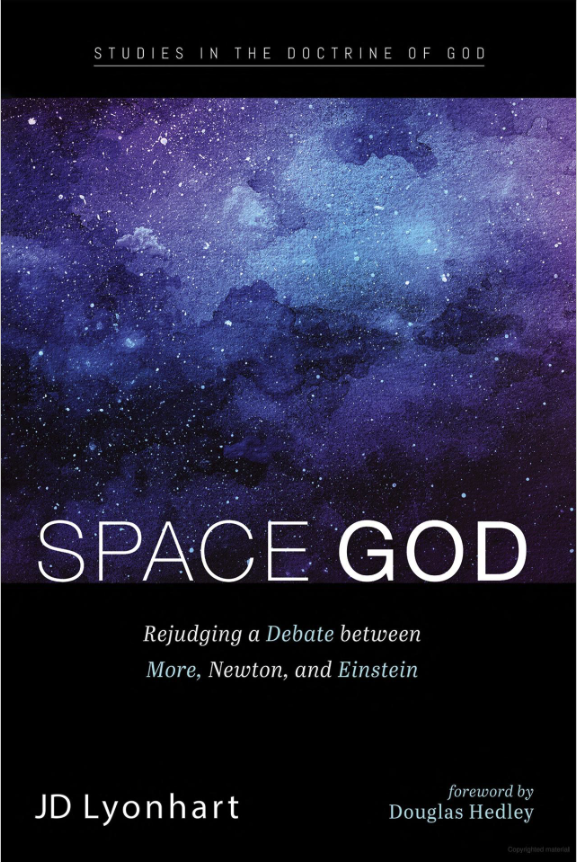
Boundaries, Extents and Circulations: An Introduction to Spatiality and the Early Modern Concept of Space.
Jonathan Regier, Koen Vermeir.
Vermeir, Koen and Regier, Jonathan. Boundaries, Extents and Circulations. Space and Spatiality in Early Modern Natural Philosophy,
Springer, pp.1–32, 2016, 978-3-319-41074-6. 10.1007/978-3-319-41075-3 . halshs-01422144
https://shs.hal.science/halshs-01422144/document
Evolution of the Concept of Absolute Space
Published 1982
https://www.academia.edu/9459058/Evolution_of_the_Concept_of_Absolute_Space
American Transcendentalism
IEP
On Divine Space
Nov 8
Written By JD Lyonhart
https://genealogiesofmodernity.org/journal/2022/11/7/on-divine-space
HENRY MORE’S “SPIRIT OF NATURE” AND NEWTON’S AETHER
TEORIE VĚDY / THEORY OF SCIENCE / XXXVIII / 2016 / 3
https://philarchive.org/archive/JOSHMS
Abstract: The paper presents the notion of “Spirit of Nature” in Henry More and describes its position within More’s philosophical system. Through a thorough analysis, it tries to show in what respects it can be considered a scientific object (especially taking into account the goals of More’s natural philosophy) and in what respects it cannot. In the second part of this paper, More’s “Spirit of Nature” is compared to Newton’s various attempts at presenting a metaphysical cause of the force of gravity, using the similarities between the two to see this notorious problem of Newton scholarship in a new light. One thus sees that if Newton drew from Stoic and Neo-Platonic theories of aether or soul of the world, we need to fully acknowledge the fact that these substances were traditionally of a non-dualistic, half-corporeal, half-spiritual nature. Both More’s “Spirit of Nature” and Newton’s aether can thus be understood as different attempts at incorporating such a pneumatic theory into the framework of modern physics, as it was then being formed.
Henry More on Space and the Divine
JD Lyonhart
MonoThreeism
An Absurdly Arrogant Attempt to Answer All the Problems of the Last 2000 Years in One Night at a Pub
by JD Lyonhart
Imprint: Cascade Books
Time and Eternity: Exploring God’s Relationship to Time.
Craig, William Lane (2001).
Crossway Books.
https://philpapers.org/rec/CRATAE
Voluntarism and panentheism: the sensorium of God and Isaac Newton’s theology
2018, The Seventeenth Century, vol. 33
God and the Natural World in the Seventeenth Century: Space, Time, and Causality
2009, Philosophy Compass
Newton, the sensorium of God, and the cause of gravity
Newton’s Anti-Cartesian Considerations Regarding Space
https://www.academia.edu/1160634/Newtons_Anti_Cartesian_Considerations_Regarding_Space
Descartes on God’s relation to time
https://www.academia.edu/4430877/Descartes_on_Gods_relation_to_time
Descartes on Time and Duration
2007, Early Science and Medicine
Absolute Space and the Structure of Consciousness in Advaita Vedānta Philosophy
Paul Schweizer
Institute for Language, Cognition and Computation
School of Informatics, University of Edinburgh
paul@inf.ed.ac.uk
Published in Kumar Sarma, S. (ed.), Dynamics of Culture, pp. 32-46. New Delhi: Param Mitra Prakashan (2016). ISBN 818597070-X.
Abstract: The paper examines the analysis of the fundamental structure of consciousness as developed in Śaṅkara’s Advaita Vedānta philosophy, and compares this highly influential Indian view with a predominant analysis in the Western tradition, viz., the Phenomenological theory of consciousness developed by Brentano and Husserl. According to the Phenomenological account, all mental states are intentional, and hence consciousness must always be directed towardsome object. In sharp contrast, Śaṅkara holds pure, undirected consciousness to be fundamental, while consciousness of a particular object is a secondary mode. In expositing the contrast between these two accounts, I draw on deep structural parallels that characterize the Newtonian versus Leibnizean theories of physical space. Śaṅkara’s notion of pure consciousness is highly analogous to the classical Newtonian conception of absolute space, and this conception provides a powerful and illuminating model of the Indian view. In contrast, Husserl’s notion of intentional consciousness closely parallels the Leibnizean relational account of physical space.
